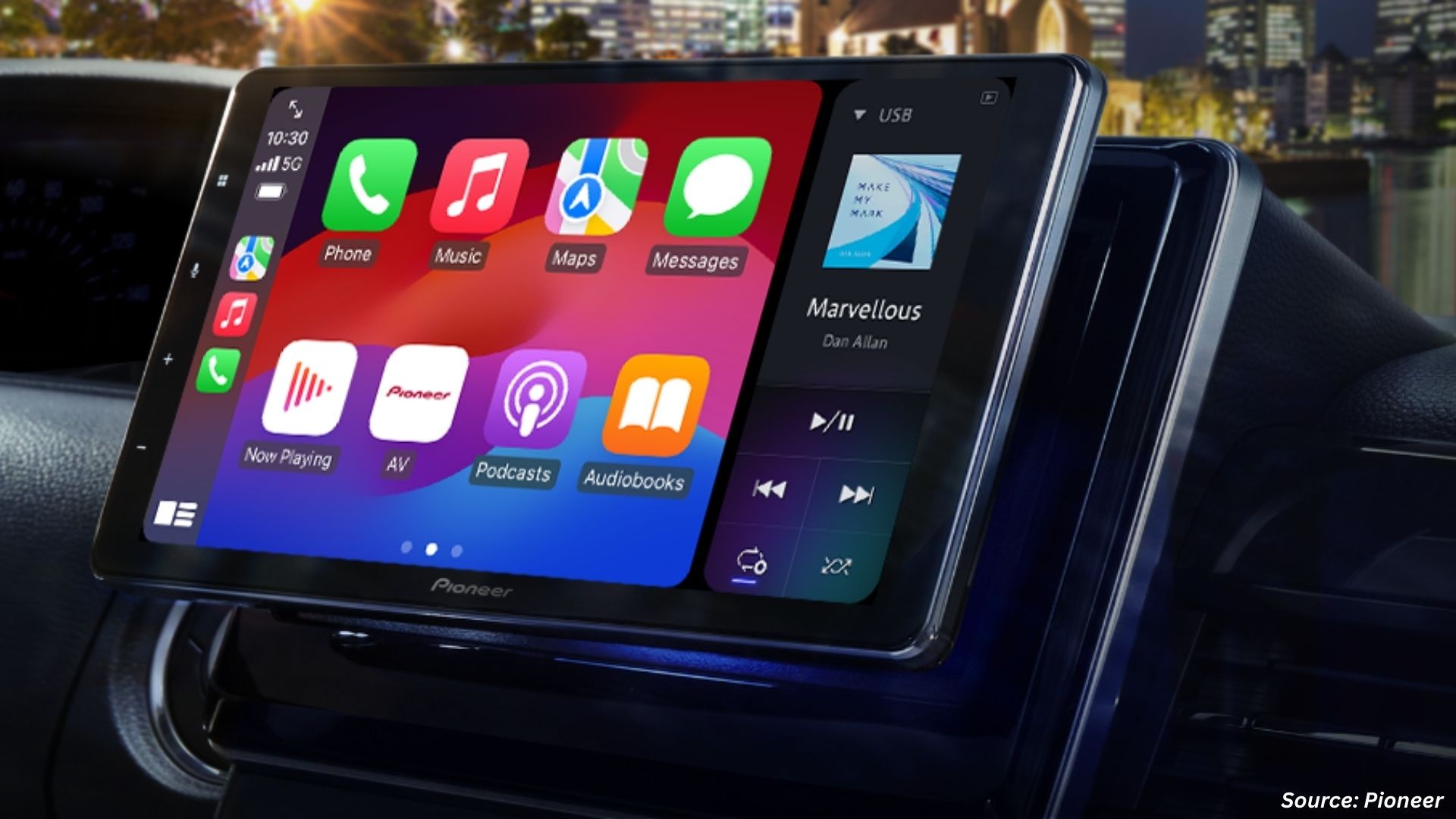
Automotive Switches Market by Material (Plastic, Metal, Ceramic, Composite, Weatherproof, Backlit, and Others), by Switch Type (Push Button, Rotary, Toggle, Knob, Lever, Touchpad, Haptic, and Others), by Vehicle Type (Two-Wheelers, Passenger Cars, and Commercial), by Application (Ignition, HVAC Controls, Steering Wheel Controls, Window & Door Locks, Overhead Console, and Others), and by Sales Channel (OEM and Aftermarket) – Global Opportunity Analysis and Industry Forecast, 2025–2030.
Industry Overview
The global Automotive Switches Market size was valued at USD 34.55 billion in 2024 and is estimated to reach USD 37.04 billion in 2025 and is predicted to reach USD 52.44 billion by 2030 with a CAGR of 7.2% from 2025 to 2030.
The market is experiencing robust growth driven by rising demand for advanced driver assistance systems (ADAS), technological innovations, and the accelerating adoption of electric vehicles. Modern vehicles increasingly require intelligent, multifunctional, and responsive switch systems to support enhanced safety, automation, and user convenience. The shift toward electric mobility further fuels the need for reliable switches to manage critical functions such as battery control and smart vehicle operations.
Additionally, integration with Internet of Things (IoT) technology presents new opportunities by enabling remote monitoring and control features. However, the market faces challenges from stringent environmental regulations on hazardous materials, which increases production costs and limit material options, potentially hindering innovation and scalability.
Rising Automotive Production and Sales Drive the Market Growth
The steady increase in global automotive production and sales is a significant driver for the market. As more vehicles are manufactured and sold each year, across passenger cars, commercial vehicles, and two-wheelers, the demand for essential components like switches rises proportionally. Each vehicle, regardless of segment, requires multiple types of switches for functions such as ignition, lighting, climate control, and infotainment systems.
Higher vehicle output leads to increased installation of both standard and advanced switch technologies, directly contributing to market expansion. Additionally, consumer demand for enhanced in-vehicle features further drives automakers to integrate more sophisticated switch systems in both entry-level and premium models.
Increasing Demand for Advanced Driver Assistance Systems (ADAS) Boost the Market Growth
The rising adoption of advanced driver assistance systems (ADAS) in vehicles is a key driver of growth in the market. As the automotive industry shifts toward enhanced safety, automation, and driver convenience, features such as lane departure warning, adaptive cruise control, blind spot detection, and automated parking are becoming increasingly standard in modern vehicles. These systems require precise, reliable, and fast-response switch interfaces to ensure effective communication between the driver and vehicle systems.
Automotive switches are essential components in enabling these functions, acting as user input devices that trigger or control various ADAS features. As consumer expectations for safety and automation continue to grow, the demand for advanced switches that support these systems is expected to rise significantly, thereby propelling market expansion.
Rising Adoption of Electric Vehicles Fuel Demand for Advanced Automotive Switches
The accelerating growth of the electric vehicle (EV) market is significantly driving the demand for advanced automotive switches. EVs rely on efficient and reliable switches to control essential functions such as power windows, battery management systems, and other smart vehicle operations. As the transition to electric mobility continues, manufacturers are increasingly focused on developing high-performance, durable, and specialized switching solutions.
According to the International Energy Agency (IEA) in 2025, a total of 17.3 million electric cars were produced globally in 2024, highlighting the strong momentum in EV adoption. This upward trend is expected to propel the demand for innovative automotive switches, contributing to the overall automotive switches market growth.
Stringent Environmental Regulations on Hazardous Materials Limits the Market Growth
Compliance with increasingly stringent environmental standards, particularly those restricting the use of hazardous substances such as lead, mercury, cadmium, and certain flame retardants, poses a significant restraint on the automotive switches market expansion.
Regulations like the EU’s Restriction of Hazardous Substances (RoHS) and End-of-Life Vehicles (ELV) directive limit material choices for manufacturers, forcing a shift toward more environmentally friendly alternatives. This not only increases material and production costs but also complicates the design and manufacturing processes. As a result, it slows down innovation and impact the overall profitability and scalability of switch production in the automotive sector.
IoT-Integrated Smart Automotive Switches Unlocks New Growth Opportunities for the Market
The integration of smart automotive switches with internet of things (IoT) is expected to create future market opportunities for the market, by enabling enhanced vehicle connectivity, real-time monitoring, and remote operation capabilities. This integration allows manufacturers to develop advanced systems that improve driver convenience and safety such as remote engine start, climate control, and diagnostics though mobile applications that further enhance overall expansion in the future of automotive interfaces.
Market Segmentations and Scope of the Study
The automotive switches market report is segmented on the basis of material, switch type, vehicle type, application, sales channel, and regions. On the basis of material, the market is divided into plastic, metal, ceramic, composite, weatherproof, backlit, and others. On the basis of switch type, it is segmented into push button, rotary, toggle, knob, lever, touchpad, haptic, and others. On the basis of vehicle type, the market is classified into two-wheelers, passenger cars, and commercial vehicles. By application, the market includes ignition, HVAC controls, steering wheel controls, window & door locks, overhead console, seat controls, lighting, indicators, multi-purpose, and others. Based on sales channel, the market is bifurcated into OEM and aftermarket. Regional breakdown and analysis of each of the aforementioned segments include regions comprising North America, Europe, Asia-Pacific, and RoW.
Geographical Analysis
In North America, the increasing consumer preference for vehicles equipped with advanced in-vehicle features is a major driver of the market. Buyers in this region are showing strong interest in vehicles that offer enhanced comfort, connectivity, and safety, such as touch-based infotainment systems, electronic seat controls, climate control systems, and driver assistance technologies. Automakers are responding by integrating more sophisticated and user-friendly switch systems into their vehicles. Additionally, the region’s high rate of technology adoption and strong automotive manufacturing base further support the development and deployment of innovative switch solutions, thereby contributing to the overall growth of the market in North America.
In Europe, the automotive switches market share is driven by stringent regulatory frameworks promoting vehicle safety and the transition to electric mobility. Governments and regulatory bodies across the region are mandating the inclusion of advanced safety features and supporting the adoption of electric vehicles through incentives and policy mandates. This has led to increased integration of ADAS, electronic control units, and EV-specific functionalities, all of which require reliable and efficient automotive switches. The region's strong focus on sustainability, technological innovation, and premium vehicle production further accelerates demand for advanced, multifunctional switch solutions, fostering steady market growth.
The Asia-Pacific region is witnessing significant growth in the market, driven by expanding vehicle production and rapid adoption of electric vehicles (EVs), especially in countries like China, Japan, South Korea, and India. The presence of large-scale automotive manufacturing hubs and increasing investments in EV infrastructure are fueling demand for advanced switch systems.
Additionally, growing consumer demand for feature-rich, connected, and affordable vehicles is prompting manufacturers to integrate more intelligent and multifunctional switches. The region’s push for smart mobility solutions and government support for cleaner transportation further boost the development of innovative automotive switch technologies, making Asia-Pacific a key growth driver for the global market.
In the Rest of the World (RoW) region, including parts of Latin America, the Middle East, and Africa, the automotive switches market demand is being driven by the gradual modernization of vehicles and rising demand for affordable yet feature-rich automobiles. As economies in these regions develop, there is a growing middle-class population seeking vehicles with enhanced convenience and safety features.
Automakers are increasingly equipping entry- and mid-level vehicles with essential electronic switch systems such as power windows, infotainment controls, and basic driver assistance features. This trend, combined with ongoing investments in automotive infrastructure and assembly operations, is supporting steady growth in the demand for automotive switches across RoW markets.
Strategic Innovations Adopted by Key Players
Key players are actively advancing smart switch technologies and reconfiguring their business strategies.
-
In April 2025, OMRON showcased next-gen relay and switch solutions for e-mobility and EV charging at “The smarter E Europe” exhibition.
-
In October 2024, TE exceeded expectations with strong EV component demand, revising its reporting toward separate "transportation" and "industrial solutions" segments starting fiscal 2025. The board approved USD 2.5 Billion share buyback.
-
In June 2023, Marvell Technology Inc. launched its Brightlane Q622x automotive ethernet switches for enabling computing architectures to improve safety and deliver software-defined services. The Q6223 offers 90 Gbps bandwidth while the Q6222 provides 60 Gbps, both featuring advanced security measures and thereby, enhancing next generation of vehicles.
Key Benefits
-
The report provides quantitative analysis and estimations of the industry from 2025 to 2030, which assists in identifying the prevailing market opportunities.
-
The study comprises a deep dive analysis of the current and future automotive switches market trends to depict prevalent investment pockets in the sector.
-
Information related to key drivers, restraints, and opportunities and their impact on the market is provided in the report.
-
Competitive analysis of the players, along with their market share is provided in the report.
-
SWOT analysis and Porters Five Forces model is elaborated in the study.
-
Value chain analysis in the market study provides a clear picture of roles of stakeholders.
Automotive Switches Market Key Segments
By Material
-
Plastic
-
Metal
-
Ceramic
-
Composite
-
Weatherproof
-
Backlit
-
Others
By Switch Type
-
Push Button
-
Rotary
-
Toggle
-
Knob
-
Lever
-
Touchpad
-
Haptic
-
Others
By Vehicle Type
-
Two-Wheelers
-
Passenger Cars
-
Commercial Vehicles
-
Light Commercial Vehicle
-
Heavy Commercial Vehicle
-
By Sales Channel
-
OEM
-
Aftermarket
By Application
-
Ignition
-
HVAC Controls
-
Steering Wheel Controls
-
Window & Door Locks
-
Overhead Console
-
Seat Controls
-
Lighting
-
Indicators
-
Multi-purpose
-
Others
By Region
-
North America
-
The U.S.
-
Canada
-
Mexico
-
-
Europe
-
The UK
-
Germany
-
France
-
Italy
-
Spain
-
Denmark
-
Netherlands
-
Finland
-
Sweden
-
Norway
-
Russia
-
Rest of Europe
-
-
Asia-Pacific
-
China
-
Japan
-
India
-
South Korea
-
Australia
-
Indonesia
-
Singapore
-
Taiwan
-
Thailand
-
Rest of Asia Pacific
-
-
RoW
-
Latin America
-
Middle East
-
Africa
-
Key Players
-
Robert Bosch GmbH
-
OMRON Corporation
-
Dhoot Transmission Pvt. Ltd
-
Waytek, Inc.
-
Daier
-
C&K Switches
-
Switch Electronics
-
Bituoelec Inc.
-
Ozautoelectrics Pty Ltd.
-
SMC Corporation
-
EAO AG
-
Grayhill, Inc.
-
HELLA GmbH
REPORT SCOPE AND SEGMENTATION:
|
Parameters |
Details |
|
Market Size in 2025 |
USD 37.04 Billion |
|
Revenue Forecast in 2030 |
USD 52.44 Billion |
|
Growth Rate |
CAGR of 7.2% from 2025 to 2030 |
|
Analysis Period |
2024–2030 |
|
Base Year Considered |
2024 |
|
Forecast Period |
2025–2030 |
|
Market Size Estimation |
Billion (USD) |
|
Growth Factors |
|
|
Countries Covered |
28 |
|
Companies Profiled |
10 |
|
Market Share |
Available for 10 companies |
|
Customization Scope |
Free customization (equivalent up to 80 working hours of analysts) after purchase. Addition or alteration to country, regional, and segment scope. |
|
Pricing and Purchase Options |
Avail customized purchase options to meet your exact research needs. |

















 Speak to Our Analyst
Speak to Our Analyst

























